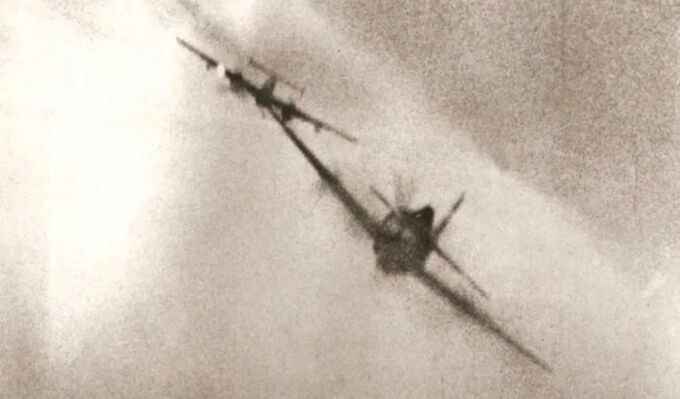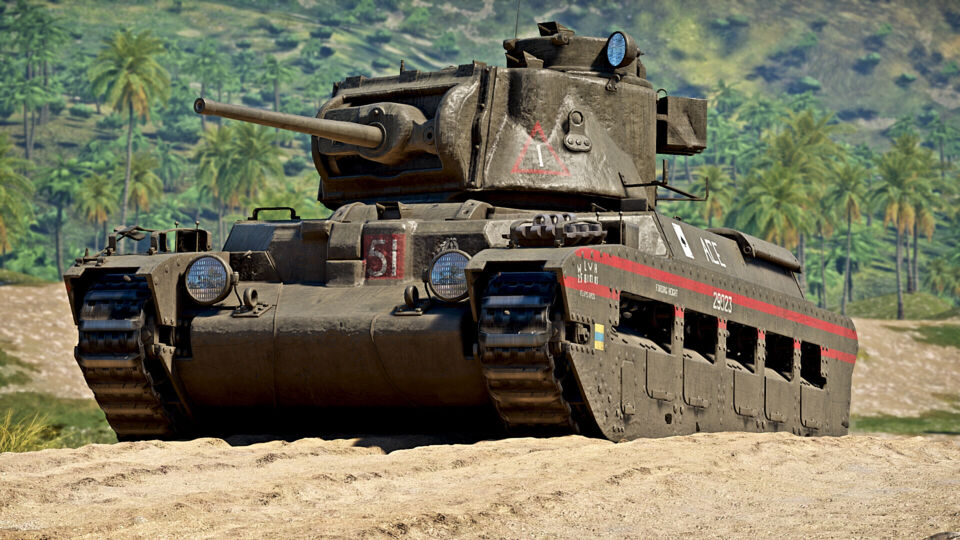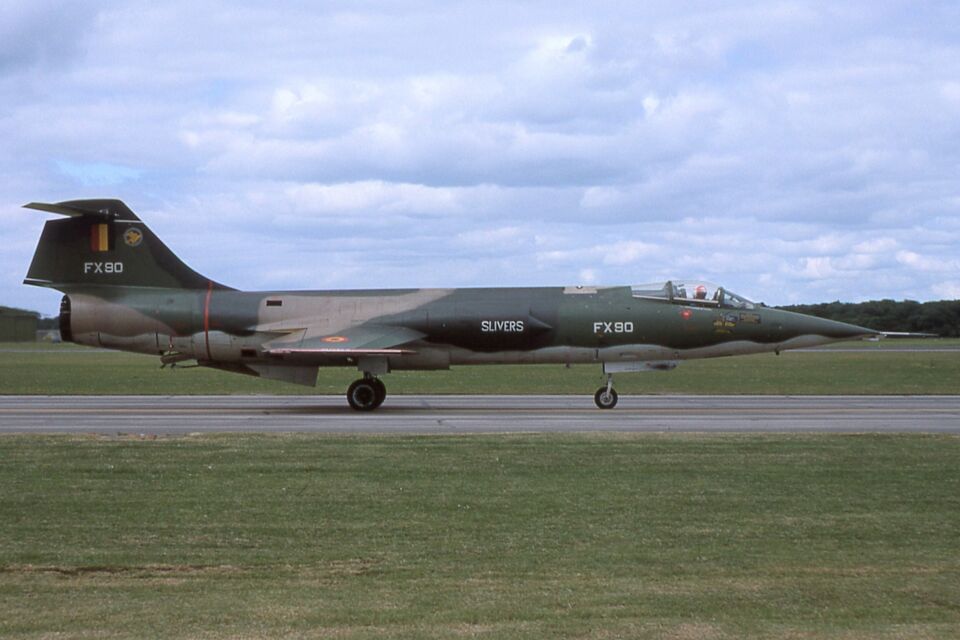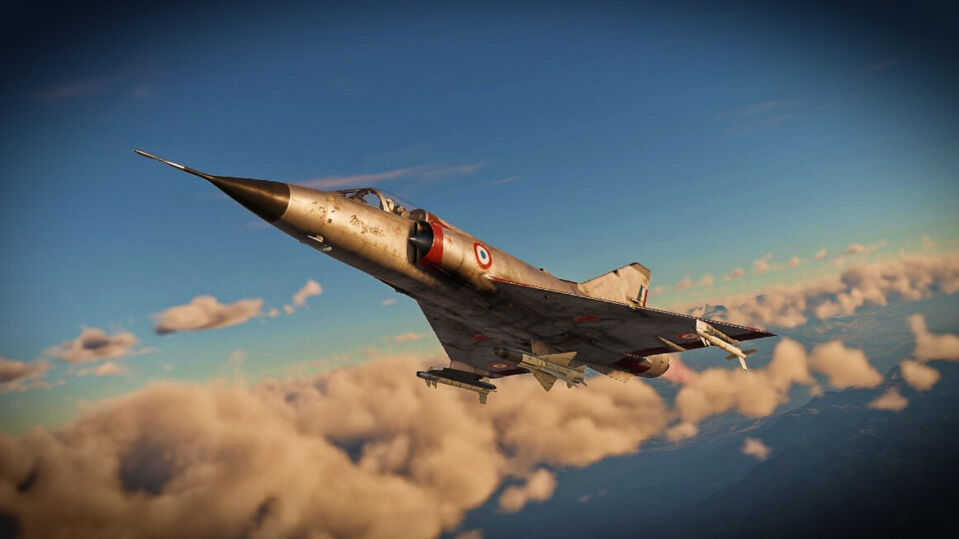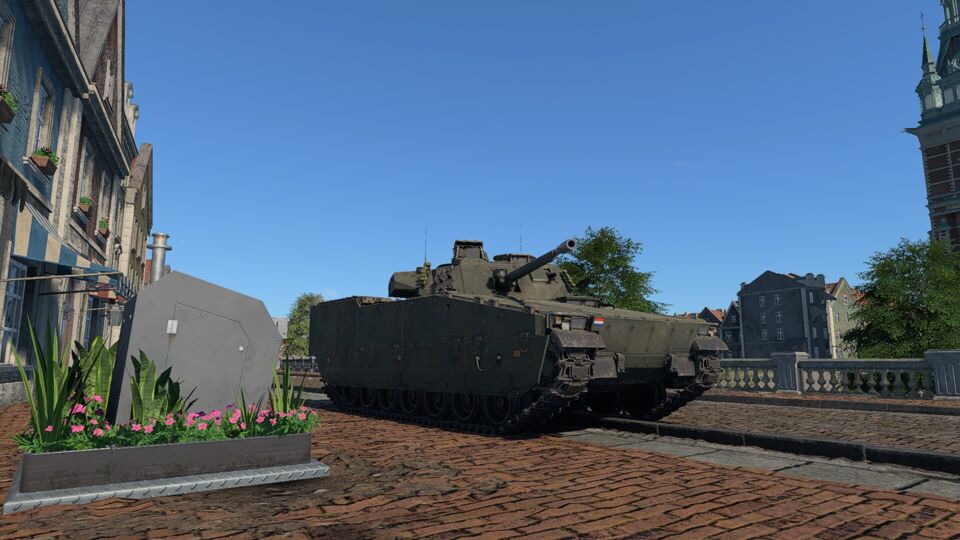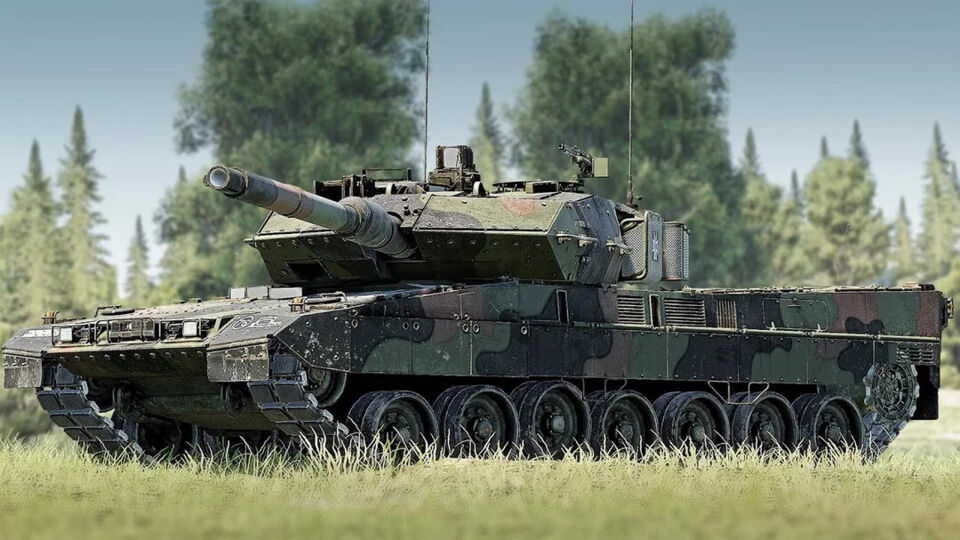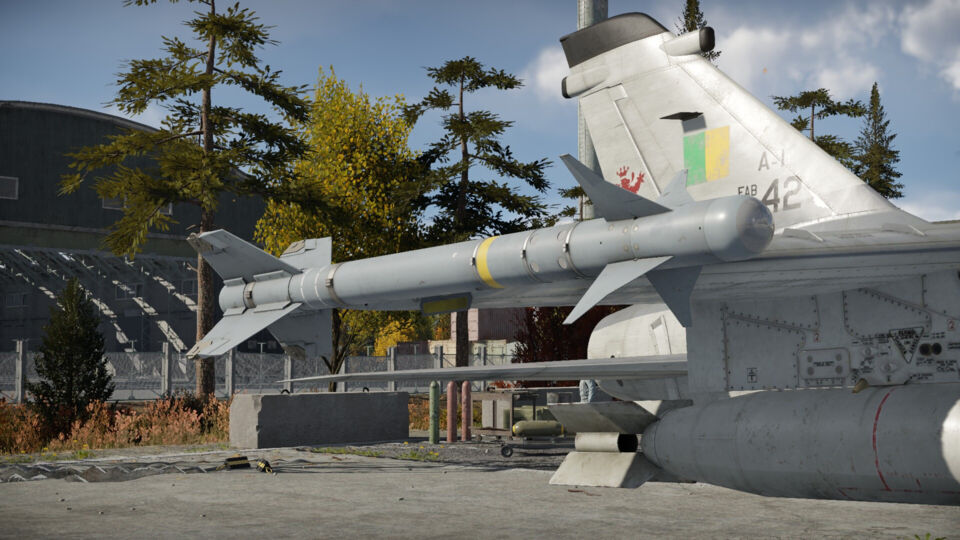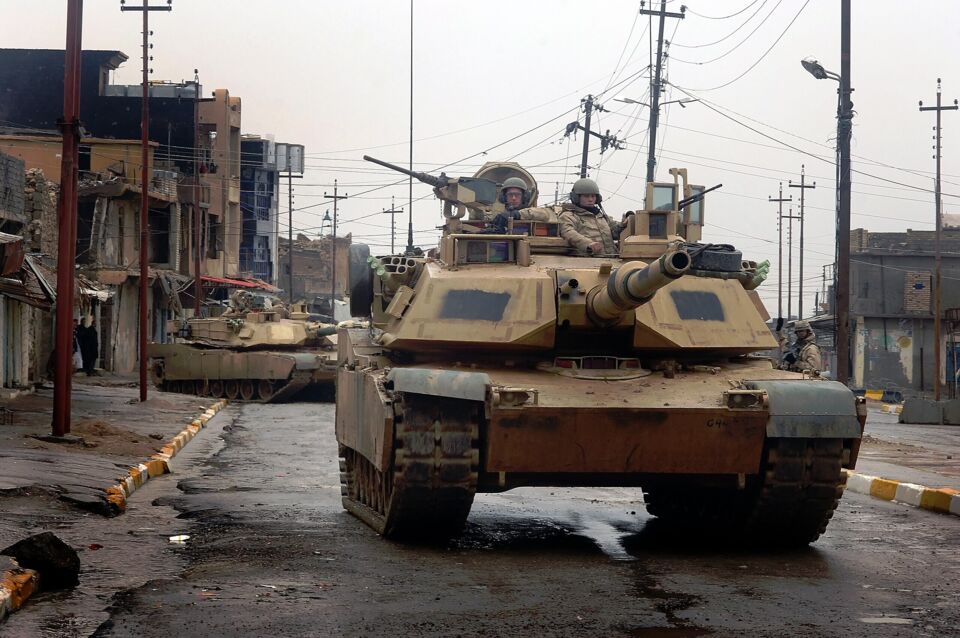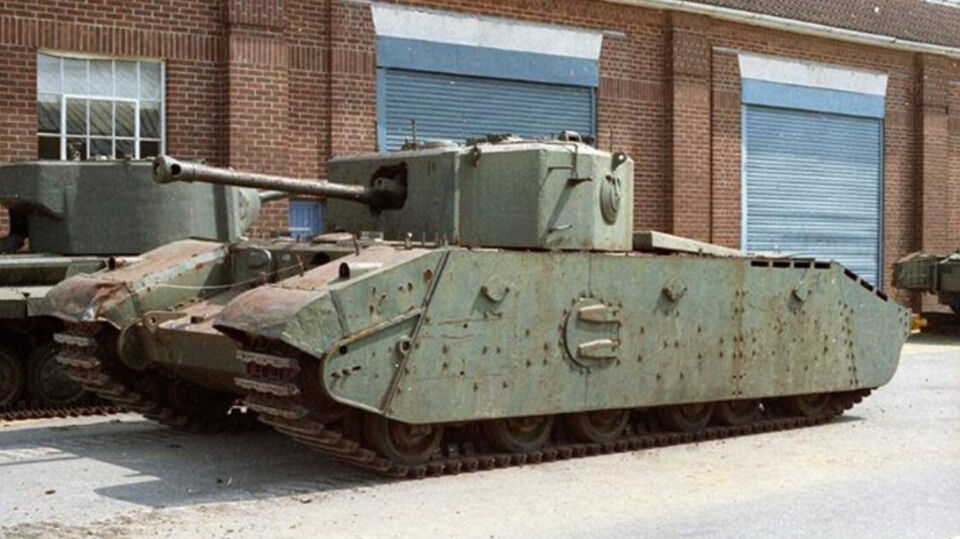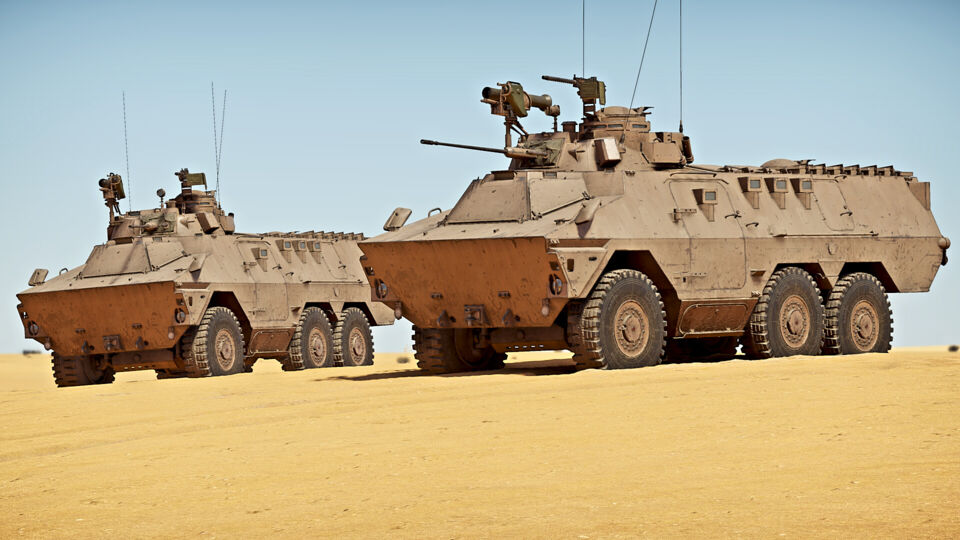#article
From the first operational jet fighter, to bombers intended to be able to fly to America in one trip, Germany’s Luftwaffe pushed the boundaries of military aviation to its fullest extent during the Second World War. However, from the war’s beginning, the Luftwaffe's leader, Hermann Göring, had avidly believed in the power of a certain aircraft type for ridding the skies of enemy fighter opposition: the 'Zerstörer' ('Destroyer'). But what actually was this design, and how successful was it in combat?
The Matilda III is an early heavy tank in the British tech tree. It boasts amazing armour and weaponry, but suffers from a poor top speed and can easily be outflanked and defeated if fighting on its own against a coordinated and determined enemy. There is also the Matilda Hedgehog, that has a mortar in the back, which can be used against enemy light vehicles, or even tanks with enough luck and skill.
In the early Cold War era, the Belgian Air Force (Force Aérienne Belge, FAB) faced the challenge of modernizing its fighter fleet to meet escalating NATO air defence demands. During the 1950s, Belgium operated subsonic fighters such as the Republic F-84F Thunderstreak and the Hunter F.6, which were increasingly seen as inadequate against emerging high-speed threats. In response, NATO initiated a coordinated effort to equip several of its European members with a supersonic multi-role platform capable of both interception and tactical strike duties. Belgium opted to join this programme by selecting the Lockheed F-104G Starfighter, a derivative of the original Lockheed F-104 designed with enhancements tailored for European operations.
The Mirage IIIC is an iconic French single-seat delta-wing jet fighter from the late 1950s. The aircraft is highly maneuverable with excellent flight performance, capable of flying at supersonic speeds at any altitude. Its primary armament consists of two 30mm DEFA cannons and air-to-air missiles, initially carrying only one Matra R530 radar-guided missile while later versions could also carry two AIM-9B or Magic 1 IR-guided missiles. For its time, the Mirage IIIC was equipped with a very modern radar, the Cyrano Ibis. This was the first radar in the world capable of automatically slewing its antenna onto a target, which meant that the pilot simply had to press a button, and the radar would acquire and lock onto the target. This reduced the workload of the pilot drastically, which is always of crucial importance in actual combat engagements.
The CV 9035NL is a Dutch variant of the CV90 series Infantry Fighting Vehicle, produced by BAE Systems Hägglunds and developed from the Mk III platform. The vehicle was ordered by the Royal Netherlands Army in the early 2000s, with deliveries beginning around 2007. It is equipped with a 35 mm Bushmaster III automatic cannon and features advanced fire-control, thermals, and a laser rangefinder.
This article examines the history of the MAA-1 Piranha, the first Brazilian domestic air-to-air missile, tracing its conception, development, testings, and the various setbacks and historical contexts that shaped the program. The Piranha was a bold project for its time, that sought to elevate Brazil into the small group of countries that were capable of producing domestic air-to-air missiles, a group which, at the time, consisted of France, the USA, the USSR, Israel, South Africa, the United Kingdom, China, Taiwan, and Japan.
Tanks have been in service for over 100 years, starting in the trenches of WW1 and still fighting today. While the first designs were slow, massive, and under-armed, they were still revolutionary, introducing an entirely new way to fight wars. Many tank designs from many nations aimed to create the fastest, the toughest, and the strongest tanks. However, one of the most famous of them all is the United States' M1 Abrams. First fielded in the 1980s, it has since fought across the world from Europe to Iraq and it has gone through over 40 years of combat and upgrades. Today, we will explore the history of the Abrams and its impact on American tank design.
We’ve already discussed the T14 (more about the T14 here in my article: T14: The Super Heavy Sherman). Now we want to take a closer look at its British counterpart, the Excelsior. Like the American T14, the Excelsior resulted from the same development project, although the Excelsior also never went into serial production; only two prototypes were built.
The Ratel 20 is a South African Light Tank in the British Tech tree, which is typically disliked. With a top speed of 65 mph, and a missile with maximum 530mm of penetration, the Ratel 20 is — on paper at least, a good light tank. However, with a poor acceleration and a rather slow missile, this vehicle does not perform too well when in combat.
